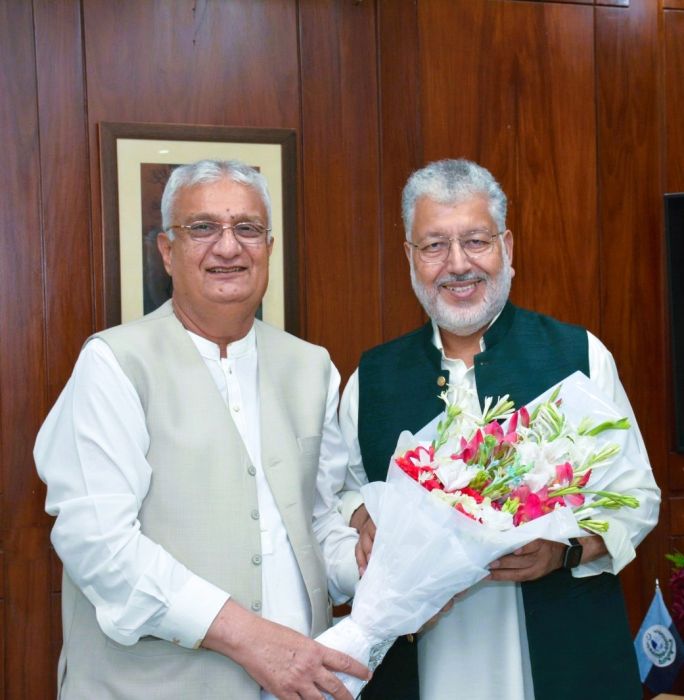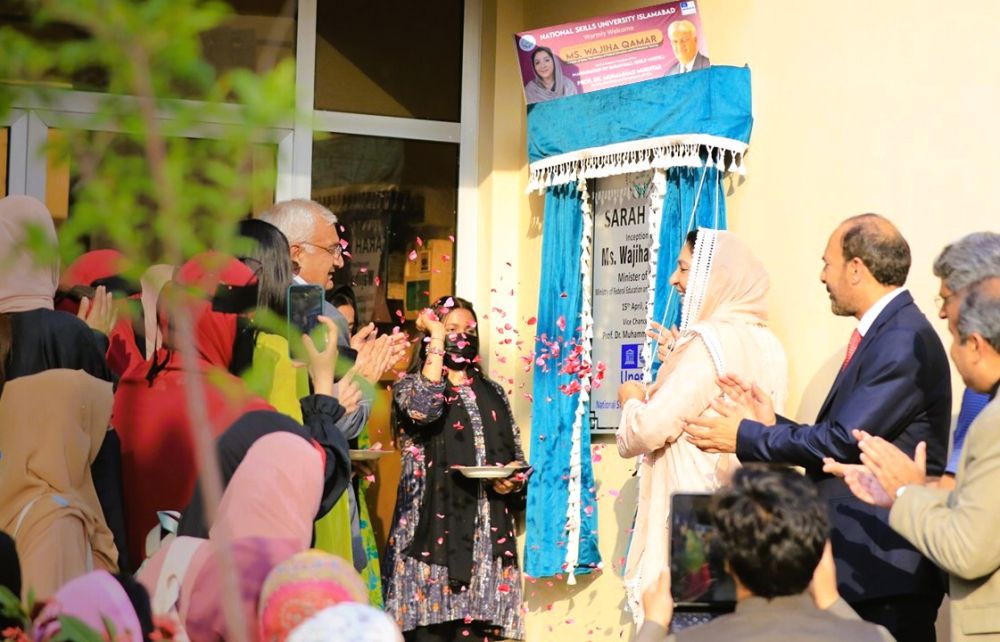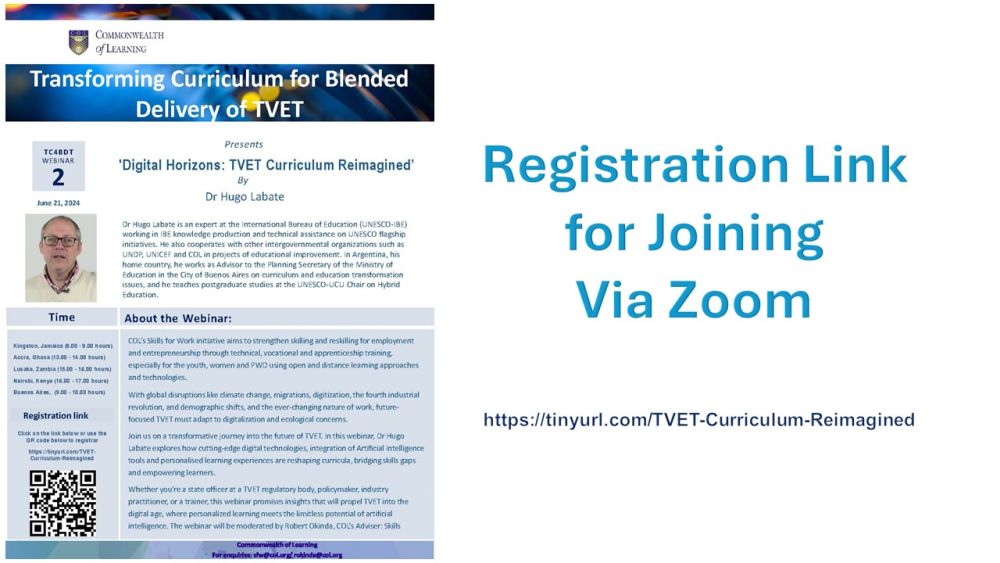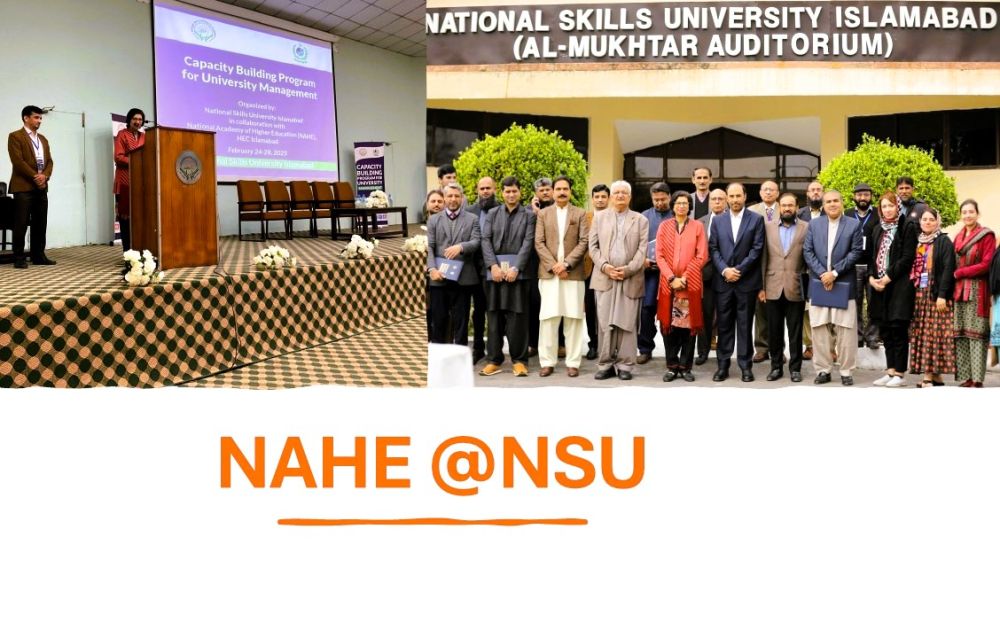Students as Major Stakeholders Contributing to Global Competence in Technology Education at the National Skills University Islamabad Pakistan
Posted 1 year ago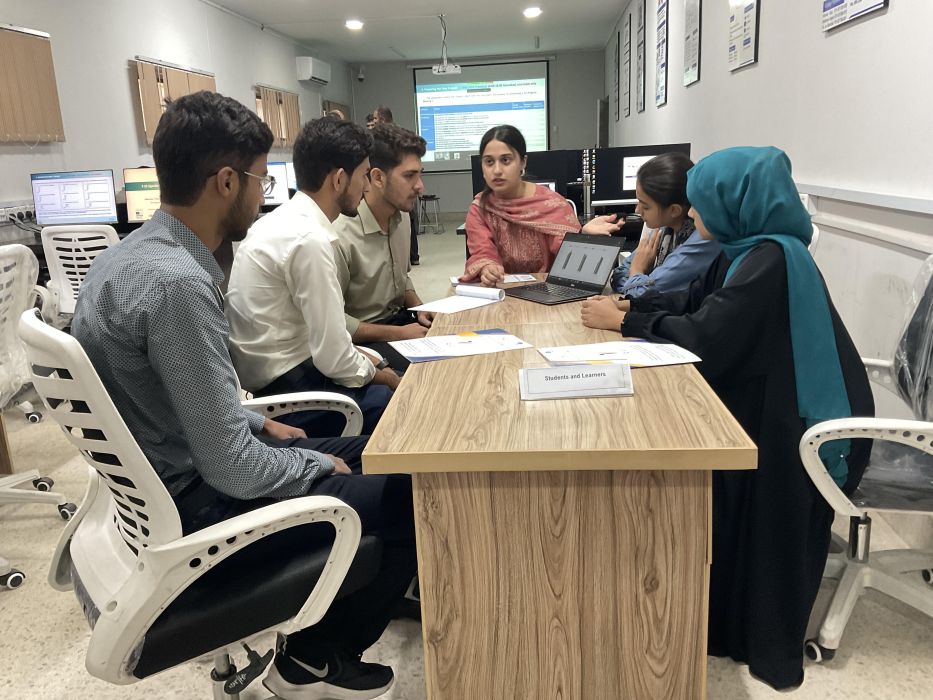
In an era marked by rapid technological advancement and shifting job markets, the role of technical and vocational education and training (TVET) has never been more crucial. As institutions worldwide grapple with equipping individuals with the skills needed for the future, the National Skills University (NSU) Islamabad stands out as a beacon of innovation and collaboration. Recently, NSU had the honor of participating in the BILT Self-Reflection Tool for TVET providers, an initiative under the auspices of UNESCO-UNEVOC.
Professor Dr. Muhammad Mukhtar, Vice Chancellor of the National Skills University Islamabad, thanked Dr. Prof. YANG Wenming (Coordinator) Ms. ZHONG Zhuoya (Programme Officer) UNEVOC Centre, UNESCO Chair on Digitalization in TVET, Shenzhen Polytechnic University (China) , to serve as a mentor organization for this program. Throughout the program, there was continued support from Alexandra Filippova, Assistant Programme Officer of UNESCO UNEVOC in Bonn, Germany, in implementing the flagship BILT project at the first Pakistani University.
UNESCO-UNEVOC, the International Centre for Technical and Vocational Education and Training, is at the forefront of a global effort to modernize and enhance TVET systems. Through its initiatives, it seeks to support Member States in strengthening TVET systems, providing youth and adults with the skills necessary for gainful employment, sustainable livelihoods, and personal empowerment. It is within this framework that NSU Islamabad's engagement with the BILT project holds significant importance.
The BILT Self-Reflection Tool represents a comprehensive approach for TVET providers to evaluate their capacity to identify, integrate, and implement new qualifications and competencies. Derived from the findings of the 'New Qualifications and Competencies for Future-Oriented TVET Systems' publication, particularly volume three, this tool guides institutions through a meticulous self-assessment process. The process is segmented into three key phases: Identification, Integration, and Implementation.
Identification involves pinpointing new qualifications and competencies with precision and timeliness, ensuring that TVET providers stay ahead of the curve in an ever-evolving job market. Integration focuses on embedding these new qualifications into appealing and adaptable curricula, meeting learners' diverse needs. Implementation emphasizes adopting innovative training approaches that make these competencies accessible and practical for students.
The benefits of this rigorous self-reflection process are manifold. In the short term, TVET institutions like National Skills University Islamabad can expect an evidence-based assessment of their capabilities. This includes a structured self-reflection process involving managers, teachers, learners, and external partners, leading to a holistic view of the institution's strengths and areas for improvement. Such an inclusive approach ensures all stakeholders are engaged and invested in the institution's progress.
The benefits extend beyond individual institutions to the broader TVET community in the long term. Sustained improvements in institutional performance and an enhanced role for TVET providers in shaping local and systemic educational frameworks are expected. TVET institutions can remain relevant and influential in the global academic landscape by continuously adapting to new qualifications and competencies.
National Skills University Islamabad's participation in the BILT project is a testament to its commitment to excellence and innovation in technical and vocational education. As part of the extensive UNESCO-UNEVOC network, including over 220 UNEVOC Centres worldwide, NSU contributes to a global movement to provide quality skills training and development for all. This participation elevates the institution's standing and highlights Pakistan's dedication to advancing TVET and fostering international collaboration.
UNESCO-UNEVOC's mission is deeply rooted in the principles established by the United Nations in 1989 with the adoption of the Convention on Technical and Vocational Education. This convention underscored the critical role of technical and vocational education in promoting peace and understanding among nations. Since the official launch of the UNEVOC Network in 1992 and the subsequent establishment of the international center in Bonn in 2002, UNESCO-UNEVOC has been instrumental in driving forward the global TVET agenda.
NSU Islamabad's proactive engagement with international collaborators through the BILT project exemplifies the spirit of this mission. By embracing a culture of self-reflection and continuous improvement, NSU is enhancing its own educational offerings and contributing to the broader goal of inclusive and sustainable economic growth. This collaborative effort underscores the importance of technical and vocational education in building resilient societies and empowering individuals to navigate the complexities of the modern workforce.
As we look to the future, institutions like National Skills University Islamabad will be pivotal in shaping a world where education and skills development are accessible to all, fostering a global community that is well-equipped to face the challenges and opportunities of tomorrow.

